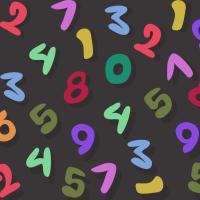
3 3 8 8 Puzzle
3 3 8 8 puzzle
Using the four numbers 3, 3, 8, and 8, and the usual four arithmetic operations (addition, subtraction, multiplication and division), can you make the number 24?
This looks a bit too easy (3 × 8 = 24), until I tell you that you have to use all four numbers - both 3s and both 8s. No silly tricks allowed - you can't use an 8 and a 3 to make 83, or raise numbers to powers or take square roots or factorials or anything else of that kind.
You can use fractions on the way, of course, but the final answer must be exactly 24. For example: 3 × 8 + (3/8) makes 24 and three-eighths, which is quite close, but no banana.
You can send your solution by e-mail to <plus@maths.cam.ac.uk>.
For some challenging mathematical puzzles, see the NRICH puzzles from this month or last month.
We have received a couple of correct solutions to the PLUS issue 13 puzzle. If you don't want to keep trying it yourself, you can see how it's done.
Anonymous
wrong,
there is a way and here it is
3 cubed = 27
27 - 3 =24
then with the two 8s you can add and take away or times and divide.
bye
Anonymous
3 cubed equals 3 times 3 times 3 and you only have 2 threes
Anonymous
How to make 21 with 1, 5, 6 and 7?
Anonymous
6 / (1 - 5 / 7)
= 6 / (2 / 7)
= 6 * (7 / 2)
= 21
Anonymous
8/(3-(8/3))
8/((9-8)/3)
8/(1/3)
24
Anonymous
Divide the first 3 by itself (Not another digit) that equals 1 plus the next digit 3 = 4 times 8 = 32 minus 8 = 24.
Anonymous
This is wrong because you have already used 3 three times. Duh!
Hina
(3/3)x(8/8)